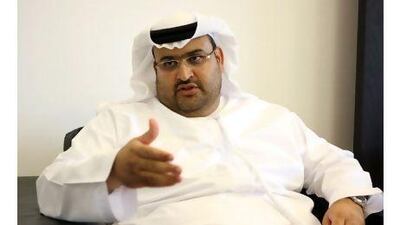DUBAI // The Dubai School of Government is struggling to improve its reputation because of financial constraints, concerns about management and uncertainty over the institution's direction.
Several senior staff have departed since December including seven out of 11 PhDs, including all three deans, and two non-PhD programme directors. Many came from top universities such as Oxford and Harvard.
The school's budget, funded by the Government, has fallen by about half since the global financial crisis began in 2008 and research activities such as international exchanges and conferences promised to scholars have been cut back.
The changes are likely to make it harder to recruit the strong managers and academics needed to build the six-year-old institution into the regional leader it aims to be, said former employees and others familiar with the school.
"We had a wonderful opportunity," said Ghaleb Darabya, a former co-director of the school's executive education programme who left in December. "Yet with forward-looking management I hope DSG can fulfil [Vice President of the UAE] Sheikh Mohammed bin Rashid's vision of becoming the leading academic institution for promoting good governance."
A "lack of resources for research" and "lack of prospect for a serious academic career" deterred staff, said a professor who has left DSG.
"The school lost the people with the best credentials," the professor said.
Some noted other changes, including that since about March, public events dropped from several a month to less than one a month. A process for vetting speakers introduced about that time discouraged organisers.
Others pointed to a possible cooling of the school's relationship with Harvard.
DSG's agreement with Harvard for academic exchanges and a formal affiliation expires this year. It may be renegotiated and probably reduced, several sources said.
Yet the affiliation is important for recruiting, one said. "It's an important signal of quality."
The liaison for DSG at Harvard declined to comment.
"The relationship between DSG and Harvard is ongoing with both parties exploring future prospects," said Tariq Lootah, the executive president of DSG.
Mr Lootah stressed DSG's efforts to keep increasing academics, public events, finances and reputation.
"DSG is a strong brand name and we will continue to build on this through strengthening our activities in teaching, research and community outreach," he said.
Mr Lootah said DSG would try to work with the private sector "to ensure a better government-to-business balance in financing".
Uncertainty about the school's direction was a concern because talented people need to know where they are going, said Khaled El Gohary, another former director of the executive education programme who left last December.
"If the direction isn't clear they will look elsewhere," Mr El Gohary said.
A source praised recent measures to track performance and accountability: "I think Lootah is trying to do the right thing: instil discipline, policies and procedures."
Some described the problems as typical of young institutions, and the loss of staff as natural turnover.
"They're not management issues you wouldn't find in any other institutions that are as young and have as limited resources," said a former employee.
"Unfortunately this does have reputational impact and at such a sensitive time, because obviously everybody is wondering what's happened.
"If they can have the right recruitment for the next phase of senior management, I think there is hope. It can only get better."
Editorial, page a15

